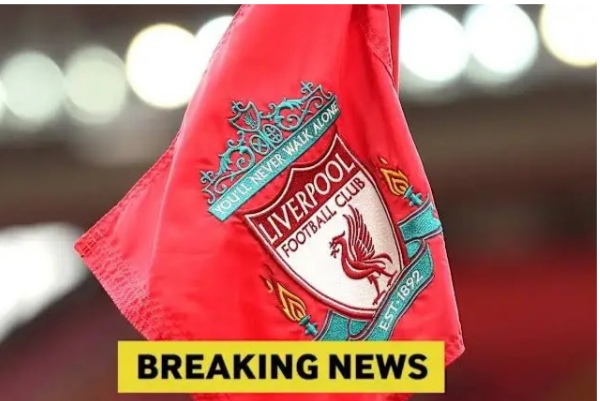When Trent Alexander-Arnold bid farewell to Anfield in May, it marked the end of an era for both him and Liverpool Football Club. The local boy who rose through the academy ranks to become vice-captain walked off the pitch in tears. His next destination was Real Madrid — a transfer that stunned the football world and left millions of Liverpool fans heartbroken.
What initially appeared to be a dream move to one of Europe’s most prestigious clubs has since raised questions about the wisdom of the decision. Months after the transfer, both Trent and Liverpool are still grappling with the fallout, as pundits, fans, and even former players express doubt about whether it was the right choice. As Liverpool continues to search for consistency under new manager Arne Slot, the absence of their homegrown star is increasingly felt.
This is the story of how Liverpool lost a local legend, how Real Madrid is still waiting to see the best of the player they thought they were getting, and how a bond that seemed unbreakable slowly unraveled.
The Shock Departure
When news broke in May that Alexander-Arnold would leave Liverpool at the end of his contract, it was met with disbelief. While there had been rumors about stalled contract talks for weeks, few genuinely expected him to leave. He had often spoken of his love for the club and his dream of one day captaining Liverpool, so when the announcement came that he would join Real Madrid on a free transfer, it sent shockwaves through the football world.
Liverpool fans were devastated. Their local hero, the player who had come up through the academy and achieved so much at the club, was joining one of their fiercest European rivals — and Liverpool wouldn’t receive a transfer fee. The sense of betrayal was palpable. This was not just a sporting loss; it felt personal.
The weeks that followed were tense. When Trent appeared as a substitute in a match against Arsenal shortly after the news broke, Anfield echoed with boos — a sound the young player had never before experienced. It was a crushing moment for a player who had given everything to the club he loved. Jurgen Klopp and Andy Robertson quickly defended him, urging fans to remember his contributions over the years and emphasizing that loyalty should be mutual.
In his final game for Liverpool, Trent took one last walk around Anfield, visibly emotional as the fans’ applause mixed with disappointment. It was the quiet end of an era.
Life in Madrid: Expectations vs. Reality
When Trent joined Real Madrid, he was greeted with high expectations. The move promised a fresh start, a new challenge, and the honor of wearing one of the most iconic jerseys in world football. Madrid president Florentino Pérez hailed him as the “future of Madrid’s right flank,” and Spanish media compared him to past club legends.
However, the reality of his transition was far from smooth. Spanish football, with its emphasis on tactical discipline and structured play, was a stark contrast to the high-paced, free-flowing football Trent was used to in the Premier League. His attacking instincts, which had been his greatest strength at Liverpool, occasionally left Madrid vulnerable at the back. Despite Carlo Ancelotti’s experiments, including using him as an inverted full-back and occasionally as a central midfielder, Trent’s best performances were nowhere to be found. His trademark crosses misfired, and his chemistry with teammates lagged behind expectations. The Bernabéu crowd, accustomed to instant success, began to grow impatient.
Liverpool’s Struggles Without Trent
Back in Liverpool, the impact of Trent’s departure was immediately felt. Arne Slot, the new manager, tried to remain optimistic, placing his trust in young Conor Bradley and spending £29.5 million on Jeremie Frimpong from Bayer Leverkusen to fill the void left by Trent. The plan was to rotate the responsibilities, but it quickly became clear that replacing Trent’s unique influence would not be easy.
Without him, Liverpool’s right side lost its rhythm. The intricate triangles and sharp diagonal passes that had been a hallmark of their attacking play disappeared. Mohamed Salah, who had formed a devastating partnership with Trent on the right wing, suddenly found himself isolated. The telepathic link between the two was broken, and Liverpool’s attack became blunt and predictable.
As the team struggled to find form, pundits began to point out what had been missing. Gary Lineker, speaking on The Rest is Football podcast, noted, “They’re really missing Trent. Defensively, sure, he took risks, but what he gave you going forward was unique. There’s not another right-back in world football who does what he does offensively.”
Jamie Redknapp echoed the sentiment, saying, “He’s the glue. Without him, Salah doesn’t look the same, the midfield doesn’t press the same, and Liverpool lose their unpredictability.”
Critics had often pointed to Trent’s defensive weaknesses, but his absence made it clear how vital he had been to Liverpool’s balance, vision, and creativity.
Mohamed Salah’s Struggle Without His Partner
The player who felt Trent’s absence the most was Mohamed Salah. For nearly a decade, the partnership between Salah and Trent on Liverpool’s right side had been one of the most lethal in world football. Salah’s runs and Trent’s perfectly placed crosses formed a devastating combination. But without Trent, Salah was often left to fend for himself, his runs going unfulfilled, his frustration mounting.
Lineker remarked, “You can see Mo’s missing him. That connection was special. Even when Trent pushed forward, there was always cover. Without him, Salah’s isolated.”
Liverpool’s attack, which had once flowed through their right flank, was now in disarray. Salah looked like a shadow of his former self.
A Club in Transition, A Player in Reflection
Arne Slot publicly admitted that replacing Trent was nearly impossible: “He’s one of the best players Liverpool has ever produced. Of course we miss him. But we must build something new.” While Slot worked on modernizing the team’s defensive structure and tactical discipline, the loss of creativity was felt deeply. Liverpool, once known for their fearsome attacking play, now appeared flat and uninspired.
Meanwhile, in Madrid, rumors began to surface that Trent was feeling homesick. Despite the glitz and glamour of life at Real Madrid, he missed Liverpool — the club, the fans, and the teammates who truly understood him. In a candid interview, he admitted, “It’s a dream to play here, but Liverpool will always be my home.”
His words spoke volumes about the emotional toll of the decision.
A Transfer Full of Regret
Looking back, it’s hard to say that anyone truly came out on top from the transfer. Real Madrid had hoped for the world’s best right-back, but instead got a player still adjusting to a new league. Liverpool, meanwhile, had to quickly come to terms with the loss of a player who had been central to their success.
For Trent, the journey now is about rediscovery — finding his rhythm in Madrid and perhaps reflecting on the decision he made. For Liverpool, it’s about rebuilding an identity without their homegrown hero. For the fans, it’s a painful reminder of how fleeting loyalty can be in modern football. A local lad who once kissed the badge at Anfield now finds himself trying to make a name for himself elsewhere.
Trent Alexander-Arnold’s legacy at Liverpool is secure. He redefined the role of the modern full-back, helped deliver the club’s Champions League and Premier League triumphs, and became an icon at Anfield. His departure, however, serves as a poignant reminder that in football, even the deepest loyalties can sometimes be broken.
Both Trent and Liverpool will move on, but the shadow of what might have been — the unfulfilled potential of what they once had — will continue to linger.


